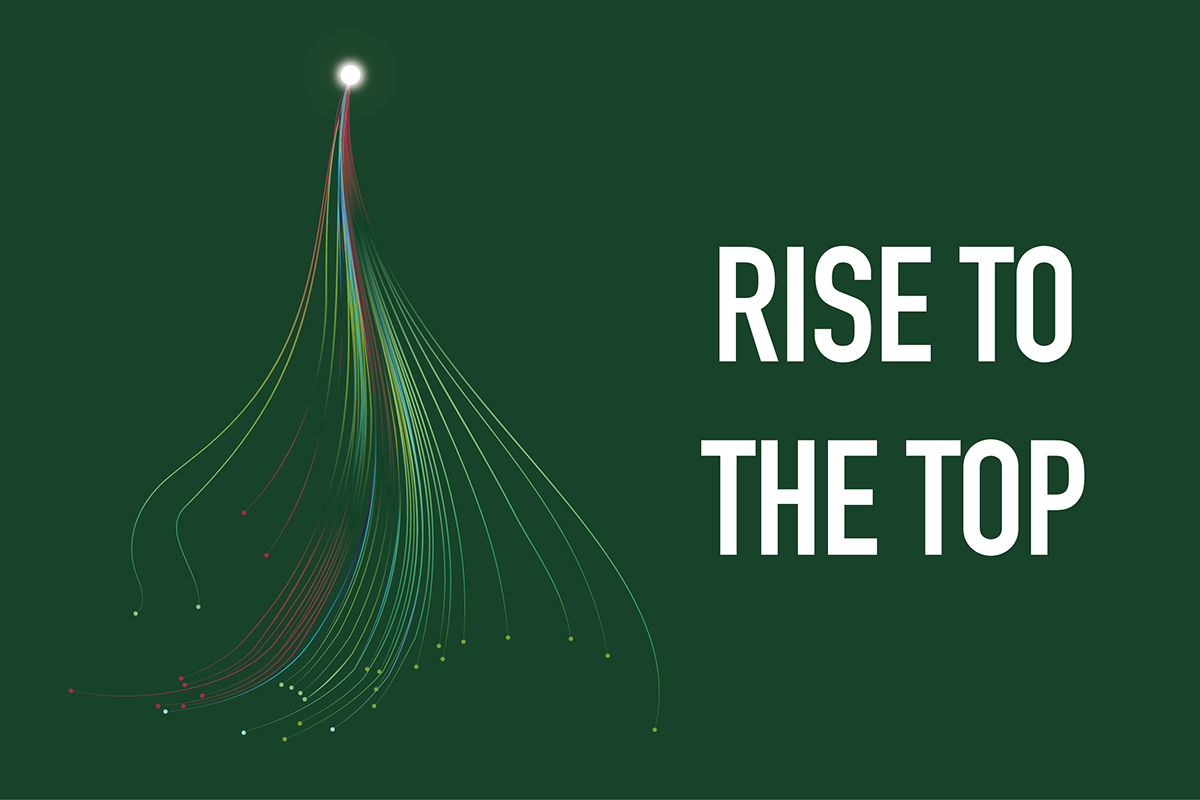Intelligence, community and recognition for pay and reward professionals.
Rise to the top
 Vanessa Ong
Vanessa OngA number of prominent HR-to-CEO appointments recently, Reward Strategy’s deputy editor Victoria Bell looks at how the Human Resources function is being seen in a new light.

The human resource function has evolved significantly in its century-long history. Experts trace the origins of the HR department to the early 1900s. After the industrial revolution, tough working conditions and unfair labour practices were part of life. Workers as a collective group were of course vital, but individually, expendable.
The Labour movement brought in a new era. Working class staff stood up to their wealthy bosses, and this social reform led to the emergence of the welfare worker. Originally known as “personnel”, it was not until the 1980s that the term "human resources" became known.
The “human” and the “resource” banners show an acknowledgement of the humanity and the value of workers.
Prior to this, employees were seen as commodities, not assets. Bosses began to see that if staff were nurtured and developed, they stayed loyal.
Today, it is crucial to organisations. HR’s role has evolved hugely, from assisting people at the very beginning of their careers to the very end, managing payroll, enforcing equality laws, improving business productivity managing employee engagement, retention, workplace culture to employment law – to the modern business partner it is today.
And the profile of Human Resources officers is rising.
HR in the spotlight
The coronavirus pandemic put HR in the spotlight. All over Britain, and indeed all over the world, HR departments were tasked at very short notice - with setting up their staff to work from home.
The duties of chief people officers were critical. They must keep employees healthy; oversee a remote-working environment; and, cynically, as a 19 recession looms, when and how to make staff redundant.
As a consequence, the apparent glass ceiling hovering over HR departments appears to be breaking as a tight labour market in which people-centric talents, are coming to the forefront.
A handful of prominent HR-to-CEO appointments has helped this shift. High-profile examples include Leena Nair who was Chief Human Resource at Unilever was made global CEO of Chanel.
Other examples promoted in the last two years include Natasha Adams at Tesco Ireland, Roisin Currie at Greggs, the venture capital firm Anthemis named Briana van Strijp CEO; Make-A-Wish Foundation promoted former CHRO Leslie Motter to president and CEO. All of these new promotees come into the job at a time when businesses are suffering huge labour shortages exacerbated by Brexit, the rising cost of living, supply chain issues and the war in Ukraine.
Walk with swagger
Nair’s appointment in January as the youngest and the first female CEO of Chanel caused a huge buzz in the HR community. Nair said on a post online: "I always tell HR people they need to WALK WITH SWAGGER! HR is no longer a backroom department, it’s a vital part of running any successful business. And if you want to support your people, you need to understand how the business works, and you need to be visible within the business. So get out there and make some waves!
"Our role is not insular, nor is it confined merely to ‘in-house’ interests. Working life has transformed over the last couple of years. To be successful in HR, it’s important to push on with this evolution: make bold decisions; dream big."
Katie Jacobs from CIPD, who champions people in HR to get top roles, says people in HR are really great business people.
Jacobs says that having HR people on executive boards is more important than ever because of the current labour shortages. HR will be heavily involved in the attracting and retaining of staff and looking at ways obviously with staffing shortage shortages as they are at the moment, that especially since we’re going into a recession, you know, this is more important than ever."
Coronavirus was a wake-up call
Amy Spurling, CEO of Compt, a US HR tech company, said that while it is relatively common for people in HR to get promoted to boards, but them getting tapped for CEO is a relatively new phenomenon.
"HR has been seen as a back-office function for far too long. The coronavirus changed that. People realised that HR are the ones running the entire show to make sure that we all survive." When does Sterling think this shift happened? "March 17th 2020", she said, when everybody in the US was sent home.
“It was cataclysmic, and it changed everything.”
Baljinder Kang was promoted to Executive Director of Corporate Resources at Midland Heart, just after the pandemic hit. She had been Executive Director of People Services from 2019. She had a strong role in organising staff in difficult circumstances at Midland Heart, a non-profit social housing association which owns and manages more than 32,000 properties across the Midlands. The task proved tricky as HR had to consider how it could continue to deliver services to customers in a Covid secure way and ensure repairs to customers’ homes weren’t postponed.
Kang and her board had to work out the semantics of carrying on their work despite the operational challenges presented by the pandemic and how to manage the organisation’s 1,141 staff.
"It was a perfect storm. We had to solve the problem of how people would work from home, how to keep people safe and how to tackle the issue of staff having to visit people’s homes for repairs. I suppose that is what the pandemic has done, it very much cemented that HR function as a trusted advisor."
"When the pandemic happened, all the taps were turned off suddenly. I think most organisations woke up to the fact that it’s not so easy to get people in and if we don’t get people in we’re not going to be able to run this business and deliver our products and services.
"There’s been much more of a focus on hanging on to the people and attracting the best talent you can get. The notion that there will always be a supply of labour has been rocked in a way that certainly in my working life has not happened before.
"There’s been a seismic shift in that kind of balancing the employer-employee relationship. It will take some time to rebalance again. But I think that was a wakeup call for most employers.” She said that although she has a strong background in HR, she does not sit on the executive board with her "HR hat" on.
"We all have to think about operational and financial issues, and we all have to think about people issues. When I’m in that room, I’m just there as an executive, none of us are there without portfolio heads on.
"When you’re an executive, it doesn’t matter what your specialism has been in the past. You need to be able to understand operational performance and data. You need to be able to understand financial performance and data and then you need to understand people performance and data and be able to triangulate all those things.
"Every now and then, your specialism does come to the fore. You’re considering business decisions. For me, I’m considering them from both a financial and people perspective.”
"The door is ajar, but can close again Richard Billingham, Aston University’s director of HR, said.
“HR departments had to adapt quickly after the pandemic hit and executives increasingly looked to HR for guidance.
“In some organisations they were seeing ’people’ for the first time. They were realising that they’re not just resources. And HR is a profession that is skilled in helping organisations to manage their people effectively.”
But Kang says it “shouldn’t have taken the pandemic” to shine a spotlight on the HR profession.
Billingham said that what became apparent after the pandemic is that the world of work has changed for good but warned that the door for HR executives is ajar at the moment, and is in danger of closing again.
"HR are playing a critical role and I think that’s probably unlocked the door for some. It has taken the pandemic, for people to realise in some senses, things changed overnight. We’ve got to be careful. That door might be ajar, but it’s easily shut. "In the current landscape, CFOs will come right back in and be prioritised for a seat at the table. It doesn’t mean that it’s going to close but the elevation of the HR person is in danger of getting overshadowed by CFOs.
"But it is obviously very important at the moment with the current staff shortages. It’s really diffi cult to recruit at the moment, and so, suddenly people are very interested in the people function and employee value proposition."
Bright future
But how many in HR set their sights on the CEO spot? Victoria McLean, founder of the career consultancy City CV, said: “I think this will help set a precedent for senior leaders in HR - and it’s always easier to pitch for a top job when someone has successfully gone before you. If it’s proven that having an HR person on your board could add fundamental value to your business, I think opportunities may increase across the board.”
She said that it brings about a more rounded board, as people with an HR background often bring new ways of looking at things. “It’s a really good way of ensuring your business makes strides forward in terms of diversity and inclusion - especially so as the majority of HR executives are female.”
Katie Jacobs said when companies are doing succession planning, they will be looking at the HR function to find a future senior executive in a way they may not have done in the past. Evidence shows the increasing and potential of the CHRO. In the modern economy, attracting the right talent, creating the best culture and providing the best support are essential for business strategy. The future certainly looks bright for HR.
